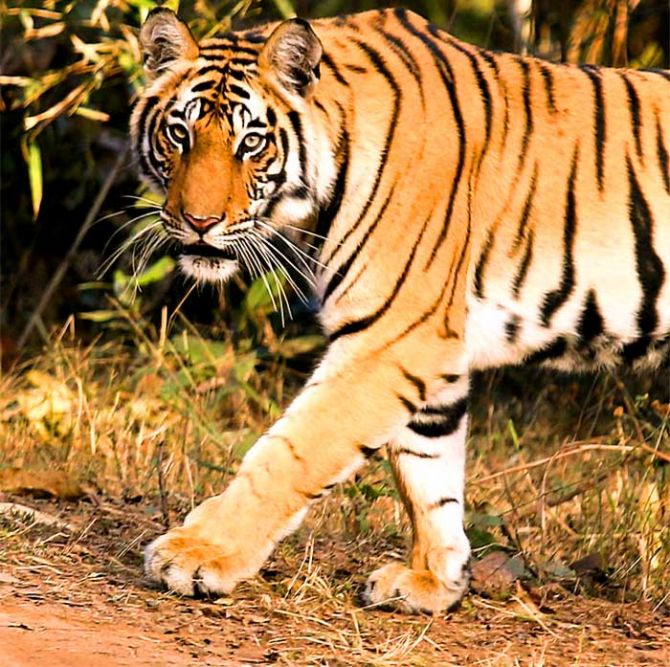A Supreme Court-constituted panel has asked the Union environment ministry to amend or withdraw the guidelines related to setting up zoos and safaris within tiger reserves and wildlife sanctuaries to discourage the use of wildlife habitats for tourism activities which are non-site specific.

In its report submitted to the apex court last month, the central empowered committee (CEC) also said that approvals given for setting up zoos and safaris within tiger reserves and protected areas should be withdrawn forthwith.
Permission can only be given for activities involving rescue and rehabilitation of injured or incapacitated animals from the same landscape, it said.
The SC panel's observation came on an issue involving the establishment of a tiger safari in the buffer area of Corbett Tiger Reserve in Uttarakhand.
According to the National Tiger Conservation Authority (NTCA) guidelines issued in 2012 and amended in 2016 and 2019, tiger safaris can be established in buffer and fringe areas of tiger reserves to "reduce pressure of tourism on core and critical tiger habitats and to foster awareness for eliciting public support".
Also, the ministry had said in June last year that the establishment of zoos over forest areas should not be considered a non-forest activity, doing away with the need for approval under the Forest (Conservation) Act, 1980. Only in exceptional cases, the fringes of the buffer zone of protected areas may be considered for the construction of a zoo on forest land, it had said.
"The mandate to locate tiger safaris within buffer and fringe areas of tiger reserves originates from the guidelines issued by the NTCA in 2012... Subsequently, the NTCA issued guidelines on establishment of tiger safaris within tiger reserves in the year 2016 and 2019. It is therefore imperative that the guidelines issued in 2012, 2016 and 2019 in this regard are amended/withdrawn," the CEC report read.
The Central Zoo Authority (CZA) also should not consider and approve the establishment of zoos and safaris within tiger reserves, wildlife sanctuaries, national parks, along animal corridors and animal dispersal routes, the panel said.
It also asked the SC to issue directions to the ministry to review the "guidelines issued under Forest (Conservation) Act, 1980 and Wildlife (Protection) Act, 1972 related to setting up zoos and safaris within tiger reserves and wildlife sanctuaries, and amend the same so as to discourage use of wildlife habitat for wildlife tourism activities which are non-site specific".
The CEC observed that safaris and zoos are one of the tools of ex-situ conservation of wildlife outside their natural habitat, including through captive breeding.
Wildlife tourism through the establishment of safaris and zoos forms an important component of conservation efforts, including tourism connected with endangered species of wildlife in educating the masses, it said.
"But the location of such safaris and zoos shall not endanger the life of the natural population and eco-tourism, and wildlife education should not be at the cost of survival of the endangered species. It should also not result in shrinkage of the already limited habitat available to such endangered species," it said.
Reprimanding the NTCA, the panel said the emphasis of its guidelines on the establishment of tiger safaris is "more on the promotion of tourism and less on conservation of the endangered national animal and therefore calls for urgent review".
It said the establishment of tiger safaris deep inside the forests in tiger reserves would require the tourists to travel long distances through the forests. Consequently, the large number of vehicles carrying such tourists are bound to cause huge disturbance to the forest and wildlife of that area.
"It is a well-accepted fact that zoo animals often harbour deadly diseases and are also a source of transmission of diseases to wild animals despite the stringent conditions imposed by the CZA. Keeping in view the precautionary principles, setting up zoos and safaris within wild animal habitats is best avoided," the panel said.











 © 2025
© 2025